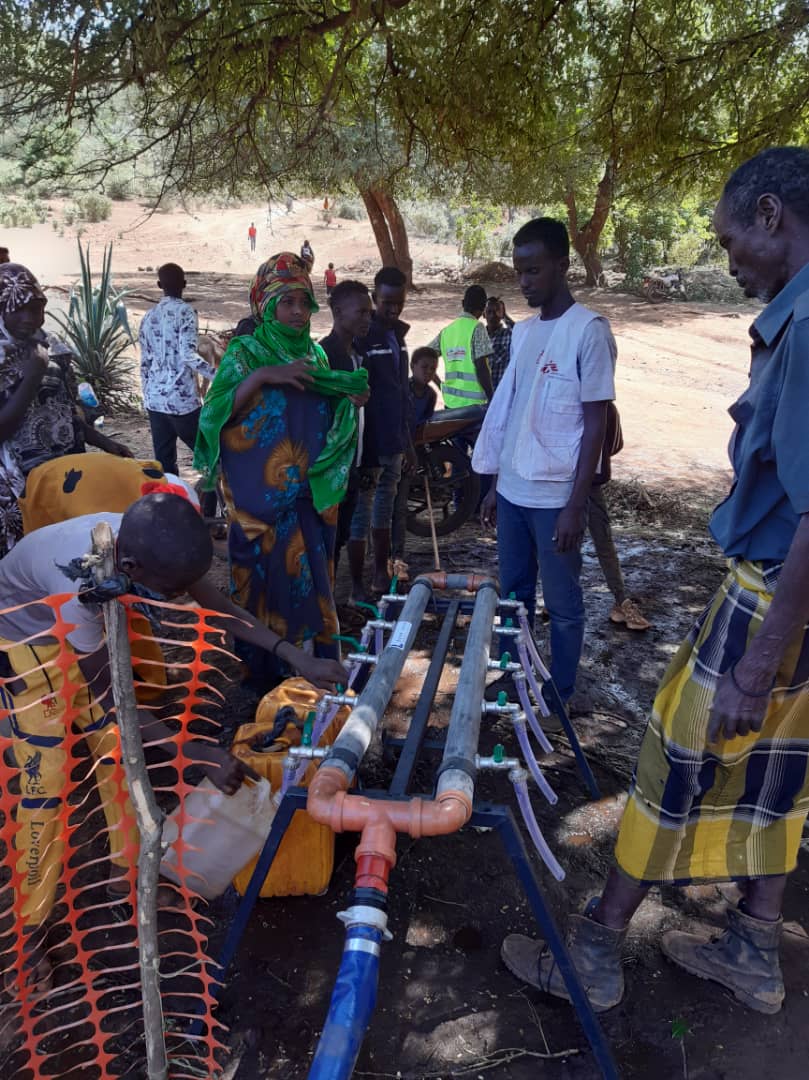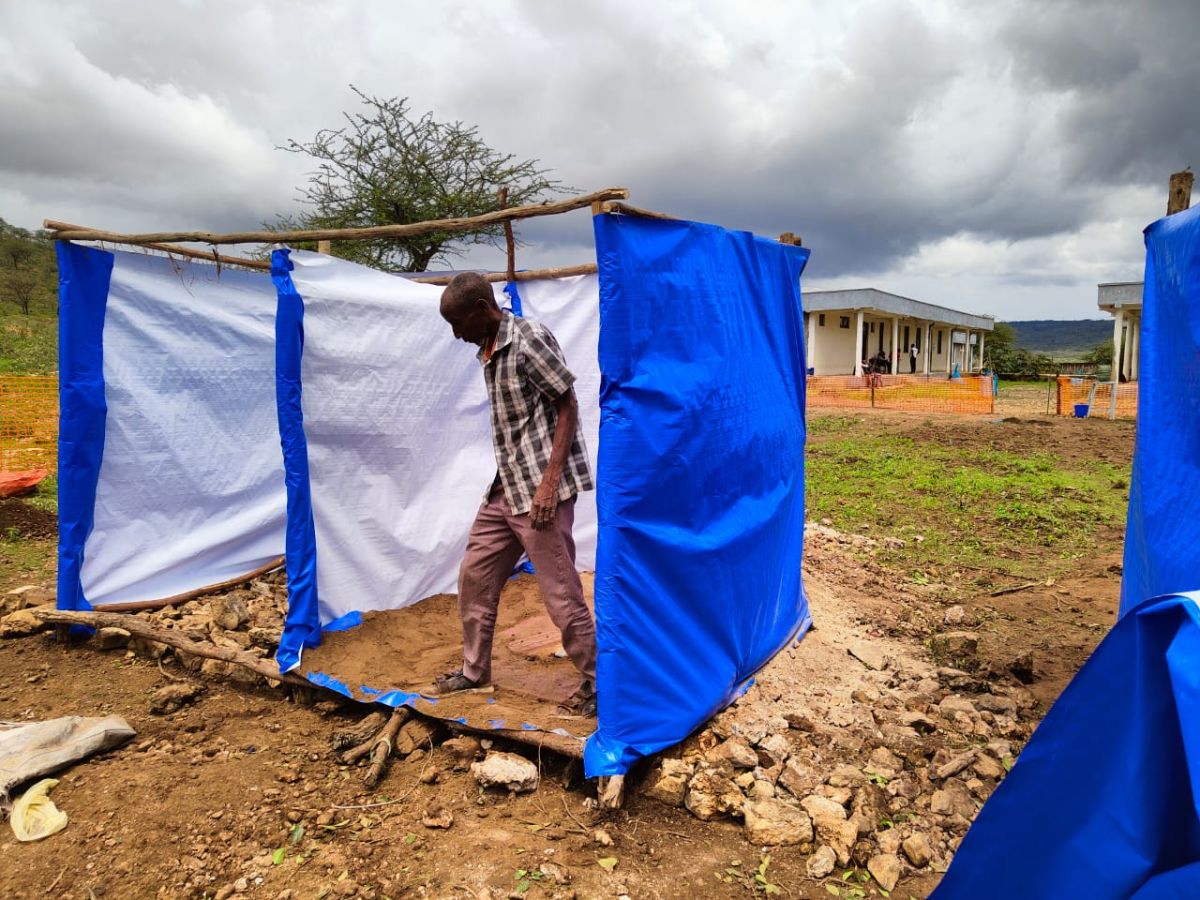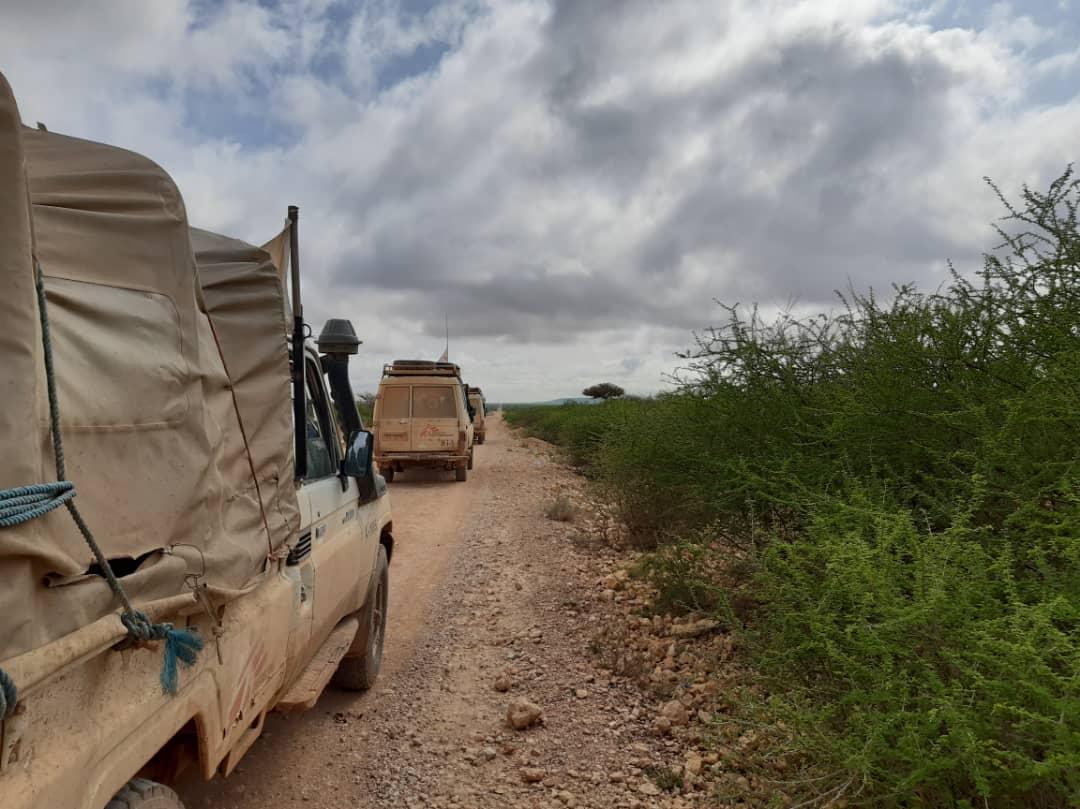Controlling cholera with early response and prevention measures
At the beginning of November, an MSF team travelled across the Somali Region of Ethiopia for a month-long response to a cholera outbreak declared in Guradamole district in Liban zone.
MSF rapidly set up a cholera treatment center and offered medical treatment to patients in Adeley camp, which is one of the most cholera-affected locations, with a population of around 75,000 displaced people with limited access to healthcare.
No access to potable water
“This was a camp that had very few latrines and not enough shelters, and more people just kept coming every day,” says MSF project coordinator Anna Bylund. At the time, the host community in Adeley had no access to potable water and relied on the river as a source of drinking water, which can become easily contaminated.
“Elders from both the host community and the displaced population that spoke to us were very worried that the cholera outbreak would spread further. Many spoke about the previous big outbreak in Liban zone in 2017 and feared it would happen again,” Anna says.
The team installed hand-washing points, they built 12 latrines, and a water treatment plant next to a nearby river to allow the communities access to clean, safe drinking water.

Household spraying
“The water and sanitation team worked extremely hard, at time well into the night using torches, to finish as quickly as possible. Everyone, including the drivers, gave a helping hand carrying the material down to the river or assembling the different pipes and parts,” says Anna.
Additionally, oral rehydration points were arranged within the camp. “The community was very welcoming and engaged in our activities. One important part of the response was household spraying. The procedure requires spraying a cholera patient's house and 20 other houses around it with chlorine.
“After our health promotion teams explained the importance of spraying, people in the neighbourhood became enthusiastic supporters: when they saw us coming, they would ask us to come and spray their homes too even when these were far away! The four daily workers we hired were all farmers that knew exactly how to use the equipment since it was what they used to spray their crops,” says Anna.

“I showed him how I was feeling her pulse.”
In the ward, medical staff also provided healthcare to cholera patients consisting of hydration and treatment with antibiotics for severe cases: “I was impressed by the number of fathers who were attending with their children,” says Denise Povnin, one of the two MSF nurses in the team. “One father stands out: his daughter arrived at the Cholera Treatment Unit in a very serious condition requiring intravenous fluids. In the first hour, I came by several times to check her heart rate. I noticed the girl’s father was imitating my gestures.
“Without using words, I showed him how I was feeling her pulse: he did the same and motioned a beating action with his hands with a big smile, showing he could feel it too. For the next couple of days, each time I would visit the ward, this smiling father would be at his daughter’s bedside, making sure she was comfortable and clean, and each day she would get a little better. On the third day, I was doing the rounds as she was about to be discharged. The father stood beaming next to his daughter dressed in pink like a princess,” Denise says.
MSF responds to a second cholera outbreak in Kersa Dula
Earlier in October, MSF also responded to a cholera outbreak in Kersa Dula in Liban zone setting up a ten-bed cholera treatment unit with latrines and showers using equipment donated by another organization. Health services were made available to cholera patients while the team conducted case definition and case management training for medical staff and ran through infection control and prevention. Another stabilization unit was rapidly build in Baliat with latrines and showers.

Response and prevention plans
Cholera outbreak response and prevention plans are interlinked. Besides ensuring access to safe water and sanitation, the team worked hand in hand with the Regional Health Bureau and provided training on case management of cholera and infection prevention and control to local health staff.
In total, 155 patients were registered in Guradamole and sadly 13 deaths. In Kersa Dula, 44 cholera cases and 2 deaths were recorded. The work carried out by our team together with our partners on the ground saved many lives.
The number of cholera cases has rapidly decreased and none were registered in Guradamole and Kersu Dula since the end of the intervention. However, while this is good news, the teams remain vigilant and continue to monitor the situation and are ready to intervene in case of new outbreaks.
On 24 June 2021 our colleagues María Hernández Matas, Tedros Gebremariam Gebremichael and Yohannes Halefom Reda were brutally and intentionally killed while clearly identified as humanitarian workers in Tigray. After extensive engagement with the Ethiopian authorities, we still do not have any credible answers on what happened to our colleagues that day. MSF will keep pursuing accountability for this incident by using all possible means and avenues, with the hope this shall contribute also to improve the safety of humanitarian workers in Ethiopia.
